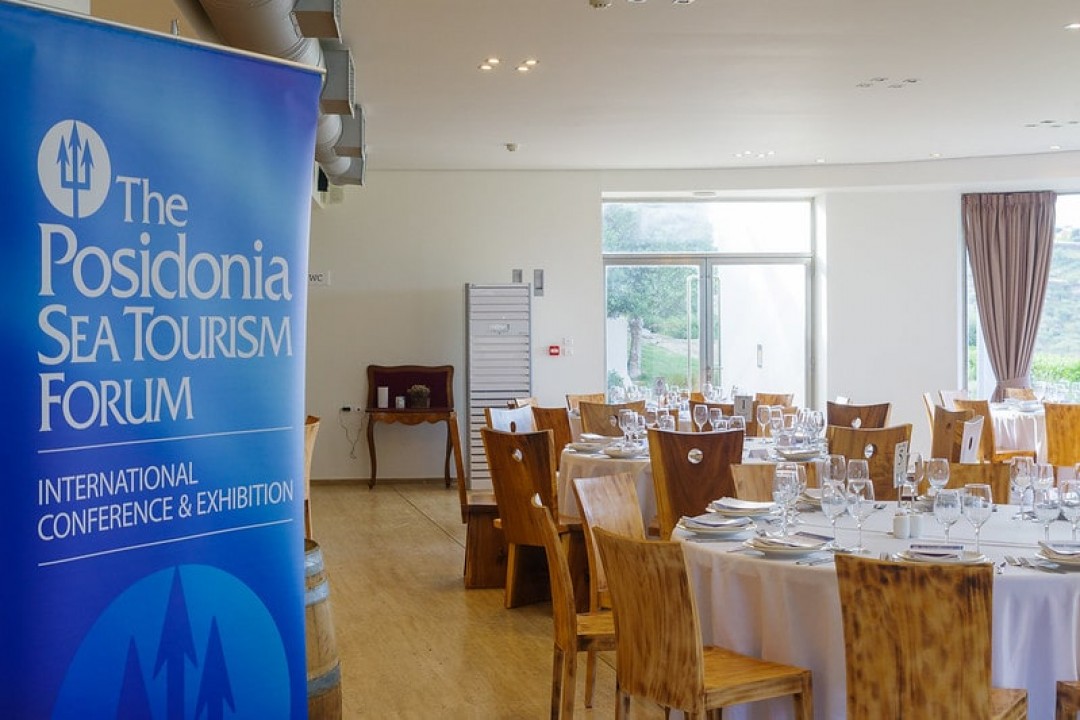A resounding call for stronger collaboration, smarter infrastructure investment, and a more inclusive approach to cruise and short-sea development across the Southeast Mediterranean region was the central message of the 8th Posidonia Sea Tourism Forum (PSTF), held on May 6-7, 2025, in Heraklion, Crete.
Hosted for the first time on Greece’s largest island and one of the country’s most renowned tourism and cruise destinations, the forum brought together over 700 senior executives, policymakers, port authorities, and tourism experts to explore the future of sustainable sea tourism under the theme: “The Med: A Compelling Need for New Marquee Ports & Destinations.”
In his keynote address, Apostolos Tzitzikostas, EU Commissioner for Sustainable Transport & Tourism, framed the magnitude of the opportunity - and the challenge - facing the cruise sector: “In Greece alone, there were almost 5,500 cruise port calls in 2024, bringing around eight million passengers to our shores. That’s a remarkable number that reflects how vital this sector is to our national and regional economies. But growth cannot come at the expense of sustainability. Competitiveness and environmental responsibility must go hand in hand if we are to secure a future for the next generation of travelers.”
The Commissioner announced the EU’s forthcoming Ports Strategy, due to be unveiled later this year: “This comprehensive plan will focus on strengthening the competitiveness of European ports while advancing sustainability, accelerating the energy transition, improving working conditions, and increasing resilience to geopolitical and economic disruptions. Crucially, the cruise industry will be an essential voice in developing and implementing this strategy.”
The event spotlighted the region’s urgent need to expand capacity, enhance port infrastructure, and better align cruise operations with local expectations and environmental commitments. Discussions challenged common narratives around overtourism, with cruise representatives from CLIA and MedCruise presenting data showing the sector’s relatively light footprint compared to land-based tourism.

“Cruise tourism makes up just 2% of global tourism numbers, yet it drives significant economic impact - nearly US$50 billion annually across Europe. In Greece alone, that figure stands at about US$2 billion. We need to reframe the conversation: cruises are not the cause of overcrowding - they are often the most regulated and manageable form of tourism”, said Julie Green, Deputy Director General of CLIA Europe.
Theodora Riga, President of MedCruise and of Corfu Port Authority, emphasised the need for data and local engagement to build trust: “In Santorini, only around 5% of visitors arrive by cruise ship, yet cruise passengers often bear the blame for congestion. We must better communicate the facts and demonstrate the socio- economic benefits. In Corfu, for instance, cruise tourism supports approximately 1,500 jobs every year. When communities are equipped with that understanding, collaboration replaces conflict, and harmony can be achieved”.
Debate surrounding the creation of private islands or cruise- dedicated destinations echoed throughout the forum. While popular in the Caribbean, speakers noted that Europe’s legal and cultural complexities make similar developments challenging. However, innovation and collaboration in how cruise lines engage with ports and communities remains crucial.
Port authorities highlighted that many Mediterranean ports have not evolved in line with the newer, larger cruise vessels. Several called for increased public and private investment to upgrade infrastructure, particularly shore power and terminal facilities.
“Ports are no longer just passenger or cargo hubs -they are evolving into energy hubs, and that shift requires enormous capital investment, smart planning, and a modernised legal framework”, explained Minas Papadakis, CEO, Heraklion Port Authority. He added: “For ports like Heraklion, which are close to urban centres, this is especially sensitive. The local community sees itself not just as a stakeholder, but as a shareholder in the port’s future. That means every step we take - in master planning, redevelopment, or investment - must be taken with public trust in mind”.

Mr. Papadakis also pointed to the financial and operational strain caused by berth cancellations from cruise lines: “We are actively considering implementing cancellation fees for berths that are booked at the start of the season but later released. These last-minute cancellations create inefficiencies, disrupt planning, and represent lost opportunities for both the port and the local economy. Cruise lines must share the responsibility for sustainable port operations.”
Local community engagement was a recurring theme, with participants agreeing that the “license to operate” in cruise tourism increasingly depends on building trust and delivering clear benefits to host cities.
One of the highlights of the event was the announcement of a two-year strategic partnership between the Posidonia Sea Tourism Forum and MedCruise. Theodore Vokos, Managing Director of Posidonia Exhibitions S.A. said: “We would like to thank MedCruise for their constant support of PSTF, as they were one of the first organisations to recognise our commitment to promoting the cruise industry and creating a platform conducive to the strengthening of relations between Mediterranean ports and the industry, and today we formalise this long-term collaboration with a strategic agreement that binds us to work together for many PSTFs to come in the future”.

 EN
EN  GR
GR 









